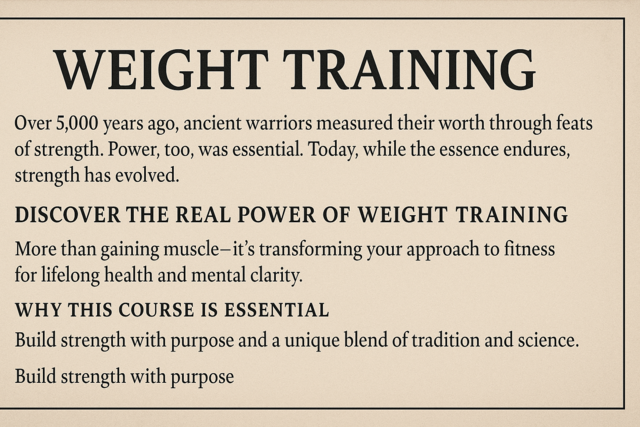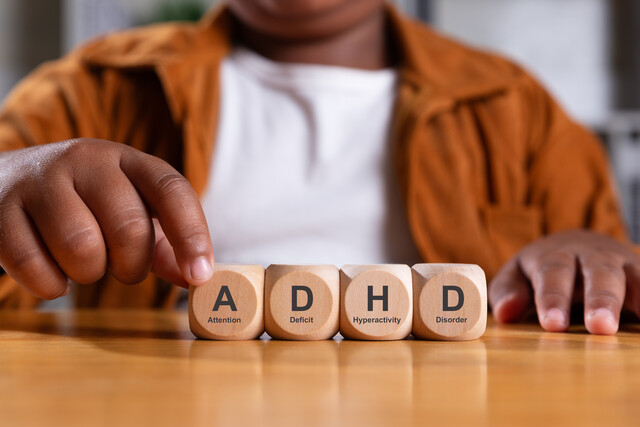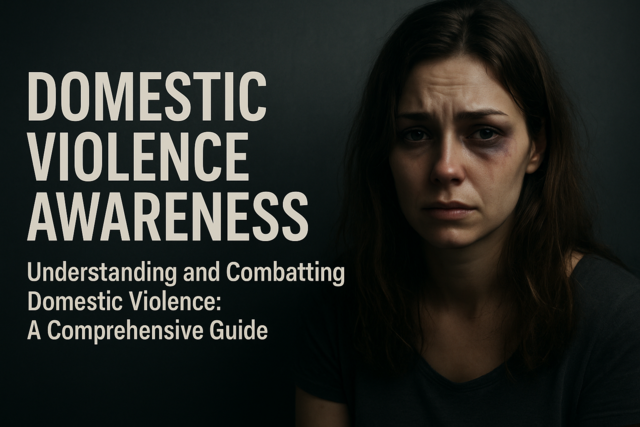Recovering from drug, alcohol, and nicotine abuse is not a "one size fits all" program. You need to think of your addiction personally and decide what is right for you. In this article, we will discuss ways that you can personalize your addiction plan for drugs, alcohol, and tobacco.
Personalizing a Drug Addiction Plan
Drug addiction is a personal experience. It is important to have a personalized drug addiction plan because, while many addictions are uncontrollable in nature and affect people similarly, your experience with drugs may be different. When you enter a drug rehabilitation program, the staff there need to recognize your own personal needs and struggles with drug addiction. You will want them to think about you as a person and not you as an "addict".
There are several reasons why you might become addicted to drugs. You may be more susceptible to drug addiction because you have a family history of drug addiction or substance abuse. You might have started out recreationally using drugs but now have become addicted. You might be unlucky enough to become addicted the first time you try a given drug. There may be external factors that play into your becoming addicted to drugs.
You may also suffer from a mental or physical disorder that is causing you to self-medicate your problem by using drugs to treat your condition. Your social environment might be conducive to drug addiction and you might be around people who encourage drug use or help you obtain your drug of choice.
Principles for Individual Drug Addiction Plans
Because everyone has a different reason behind their becoming addicted, it is nearly impossible to have one drug addiction plan that works for every person. Instead of trying to use a generic drug addiction plan, you may wish to consider personalizing your own individual drug addiction plan that addresses the needs you have around your addiction to drugs.
The National Institute on Drug Abuse has the following principles used by drug rehabilitation programs that help to customize treatment for each person addicted to drugs:
-
Treating co-existing disorders along with the drug addiction
-
Using medications only when necessary
-
Assessing the treatment plan throughout the rehabilitation process so that changes can occur for everyone
-
Addressing all aspects of the person, including their emotional, mental, and emotional needs
-
Recognizing that all treatment plans should be individualized
-
Offering addicts many types of therapy options
-
Making treatment available for everyone
-
Seeing addiction as a disease that originates within the brain
-
Using medically supervised detoxification as the beginning part of the rehabilitation process
-
Testing for infectious diseases and referring those with disease to a provider for treatment
It is important to find a treatment center that offers the above services as this will help you obtain sobriety and maintain it for the rest of your life.
Individualized Drug Treatment Plans
One of the most important ways that a drug treatment center can provide you with an individualized drug treatment plan is to provide addicts with therapy sessions that are both individualized and varied. Treatment can involve any combination of these types of treatment:
-
Group therapy, of which there are many options available for group support and encouragement from other addicts that know what you're going through.
-
Family counselling that focuses on both effective communication and interpersonal problem solving
-
Individual counseling that provide behavioral therapy on a one-to-one basis. They are designed to help you understand your addiction, deal with the underlying problems, and problem solve around the possibility of relapse
-
Educational programs that teach you about addiction, how to stay clean, and how to prevent a relapse.
Addiction involves many personal and physical struggles. The abuse of drugs can only be the surface of a deeper concern or problem. By having a personalized addiction treatment plan, you can find out why you are addicted to drugs and can learn how to overcome the underlying reasons behind your addiction. By having a personalized drug addiction plan, you can find out what works for you and try to figure out ways to become clean and sober--and stay that way.
This often means entering a drug rehabilitation program, which can last anywhere from 30 to 90 days. There you can detoxify from your drug or drugs of choice, learn about addiction, and find ways to remain sober once you graduate from the program. You need to surround yourself with compassionate and caring individuals who understand addiction and can work with you individualized drug addiction plan.
Your personalized drug addiction plan can address your problems of dependency on the drug. As you detoxify and the drug leaves your system, staff can help you deal with withdrawal symptoms and may be able to give you medications that will help you overcome these symptoms.
Your personalized drug addiction plan will vary depending on the drug you are abusing. Your will have a different plan if you are addicted to methamphetamine than you will if you are addicted to heroin or other opioid medication.
Your personalized drug addiction plan can address all of your concerns regarding your addiction, including self-esteem issues, past traumatic experiences, mental health issues, and any physical problems that have come up as a result of your addiction.
The way to start your path to recovery is to call a drug treatment facility. They will ask you about your addiction, about any underlying medical and mental problems you have, and what your plans are for recovery. When you get there, you will work with the staff to develop your own personalized drug addiction plan so that you can tailor your recovery to your own individual needs.
There may be an assessment phase, in which you will take a battery of tests that help the staff understand your addiction, physical problems, and emotional disorders. You may have to take a personality inventory test to see if you have any underlying mental disorder that is contributing to your addiction. There are other tests that help determine to what degree you are addicted to your drug of choice. Besides having an addictive disorder, you may have post-traumatic stress disorder, anxiety, or depression that needs to be handled before you can stay sober.
Family therapy may be a part of your personalized drug treatment plan. You may find that there are enablers in your family that will interfere with your recovery if not dealt with before you get discharged from the treatment facility. Some programs will include family therapy as an adjunct to the other therapies you will receive.
You won't really recover from drug addiction until after you leave the treatment facility. This is when the stressors of everyday life will come back to entice you to use drugs again. You may still have cravings for your drug of choice and you need an action plan to deal with them for when you get out of the rehabilitation facility. It is too easy to fall back on old routines and habits that can lead to an unnecessary relapse.
Start first by contacting a good long-term drug rehabilitation program and begin developing your personalized drug addiction plan. From there, you can work the plan, recover from drugs and go on to have a healthy life free of addiction.
Personalizing an Alcohol Treatment Plan
Treating alcohol addiction is more complicated than just taking a medication prescribed by your doctor for an instant cure. Alcohol addiction is a chronic brain disease that needs far more treatment than that which can be cured with medications alone.
If you are living with alcohol addiction, you need to be committed to sobriety and you need the help of qualified professionals who can help you develop a personalized alcohol treatment plan that will allow you to be treated with your own personal needs in mind. This is why you need a personalized alcohol treatment plan.
Why One-Size Fits-All Treatment Plans Don't Work
If you choose to partake in a one-size-fits-all treatment plan, you will be getting a generic-type treatment that won't have your personal needs in mind. This type of approach can be risky and ineffective because it assumes that every alcohol-addicted person is the same and needs the same type of treatment. This can increase your chances of a relapse or treatment failure.
Benefits of having a Personalized Treatment Plan
There are many benefits from having a personalized treatment plan. For example, these two reasons represent two of the best reasons why you need this type of plan.
-
Yours is a Unique Situation. Everyone has different reasons for being an abuser of alcohol. The reasons why you drink will be different from the reasons another person drinks. While your reasons for drinking might be similar to others, yours is a unique situation that requires a personalized alcohol treatment plan so that you can take into account your own reasons behind your alcohol use. You will want to have a complete assessment of your needs so that a personalized alcohol treatment plan can be created with your needs in mind. Failing to do so may result in ineffective treatment or treatment failure.
-
Personalized treatment plans offer the best chance for relapse prevention and long term sobriety. You want to make sure that your individual needs are addressed and that they are addressed with a direct focus on what you need to stay sober. By having a personalized treatment plan, you will learn the tools you need to have in order to deal with urges to drink, cravings, and better relationships with your family and friends once you have left the rehabilitation facility and have returned to your regular life.
As you will have different issues when compared to another alcoholic, you will want to have your own issues addressed. Your triggers may be different from another person who abuses alcohol and, in order to have the best chance to avoid a relapse, you will need to have a personalized alcohol treatment plan that addresses your specific needs and triggers. Having a one-size-fits-all treatment plan doesn't take into account your specific issues and you may have an increased chance of relapsing or having a treatment failure.
With a personalized alcohol treatment plan, you can have the best chance of recovering from your addiction and will have a decreased chance of relapse. You'll need professional care with staff that will help you with withdrawal symptoms and will help you make the best use out of your individualized alcohol treatment plan.
If you try to recover on your own, you will have a greater chance of having intolerable withdrawal symptoms and an increased chance of dying from alcohol withdrawal. Your personalized alcohol treatment plan will be overseen by specialists that can help you through withdrawal symptoms, help you learn how to stay sober, and will help you find strategies that will prevent a relapse.
The first step is to have a clinical assessment of your alcohol abuse and your symptoms. You will work with an alcohol treatment counselor who will help you create a personalized alcohol treatment plan that addresses your individual goals and needs related to your addiction.
This may mean that you enter an inpatient alcohol treatment program to receive your care or that you enter into an outpatient alcohol treatment program to receive your care. The route you go depends on how severe your addiction is and on the amount of care you need regarding things like withdrawal and other issues related to your alcohol addiction.
How to develop an Alcohol Addiction Plan
The first thing you need to do is to take the time to write down your specific needs regarding your alcohol addiction. It should include your goals for recovery and the issues you are facing as a result of your addiction. Jot down not only the issues you are facing but the way you plan to achieve your goals of being sober and free from alcohol addiction.
Make sure you know how you will be able to tell if a particular goal has been reached. Have a specific time frame in mind or achieving your goals. As you work toward sobriety, there will be different challenges to face and your personalized alcohol addiction plan will help you define your challenges and how you will overcome them.
Obtaining New Life Skills
You will be able to obtain support and assistance in your recovery by participating in group counseling sessions and individual therapy. During your individual therapy sessions, you will address the issues in your personalized alcohol addiction plan and will learn new ways of coping now that you are about to become sober. You will learn new life skills that will help you through the process of recovering from your addiction and remaining sober for the rest of your life.
Most inpatient and outpatient treatment facilities will work with you on your personalized alcohol addiction plan in order to find ways to obtain new life skills that will guide your sobriety after you leave treatment. If you, for example, need to get a new job, many treatment facilities will assist you in job rehabilitation so you can have a career to fall back on after you are clean and sober.
Using a Personalized Alcohol Addiction Plan to Prevent Relapse
You can use your personalized alcohol addiction plan to help you identify your triggers and will help you prevent relapse. Your triggers can be anything that causes an increase in cravings for alcohol and will be related to things like past traumas, a specific person, or a specific activity you engaged in when you were using alcohol.
Your personalized alcohol addiction plan will help you plan for the possibility of relapse and will help guide you toward ways you can avoid having a relapse. You may decide to attend Alcoholics Anonymous in order to meet others in your same situation and in order to decrease your chances of relapse.
Personalizing a Smoking Addiction Plan
Quitting smoking is also not a one-size-fits-all process. Each person has different reasons behind their tobacco abuse and it takes a personalized smoking addiction plan to identify your triggers and to identify ways in which you can overcome your addiction to smoking.
How to Begin a Personalized Smoking Addiction Plan
There are things you'll want to do in order to have the best chance of quitting your smoking addiction. You will have to set a quit date, for example. Other things that you will want to do as part of your personalized smoking addiction plan include the following:
-
Avoid environments that trigger smoking behaviors
-
Spend time with friends and loved ones who do not smoke
-
Refer back to your plan periodically in order to reinforce the reasons why you want to quit smoking
-
Talk to people who are supportive of your plan to quit smoking
-
Burn off tension by exercising regularly
-
Avoid any triggers to smoking
-
Try to stay active so you aren't so focused on smoking
-
Avoid caffeine and alcohol
-
Have your teeth cleaned
-
Get rid of the smell of cigarettes from your environment
-
Eat healthy foods
-
Have healthy snacks on hand that can be eaten in place of smoking
-
Drink plenty of water
-
Get enough sleep
-
Change your routine so you are less likely to come across triggers
-
Throw away all lighters, matches, tobacco, and cigarettes
Preventing a Relapse by having a Personalized Smoking Addiction Plan
After you quit smoking, you are always at a risk of suffering from a relapse. Here are some things you can do to avoid suffering from a relapse:
-
Plan your daily activities so you aren't overwhelmed
-
Begin a new hobby
-
Try reducing stress through relaxation techniques
-
Avoid situations that are stressful as this can trigger a relapse
-
Write down how much money you are saving as a new non-smoker
-
Make sure you avoid smokers who are actively smoking
-
Drink plenty of water (to flush out toxins you get from smoking)
-
Get adequate sleep
-
Avoid environments where people are smoking
-
Don't give into temptation to have "just one more cigarette"
-
Avoid alcohol for the first 3 months after quitting
-
Get plenty of exercise
These are all things you can incorporate into your smoking addiction plan so you can have the best chance of being able to quit smoking and remain a non-smoker. You, too, can be a non-smoker if you plan ahead and use your smoking addiction plan to tailor your "stop smoking" efforts to your own individual needs.






























